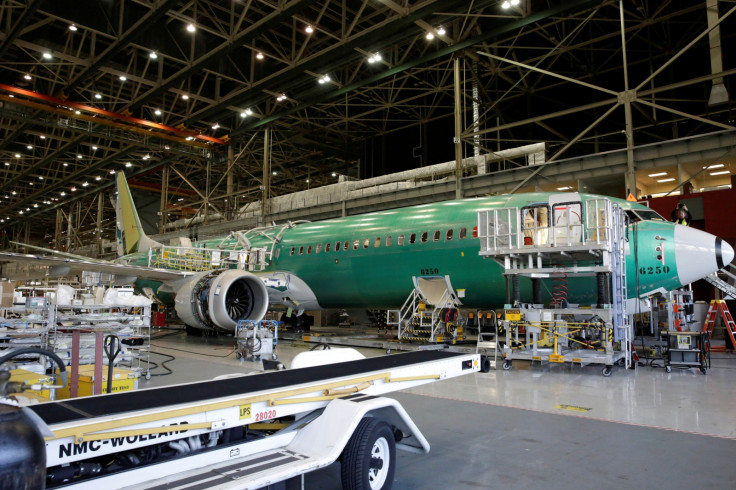Boeing stops 737 MAX tests days before delivery after engine issue
Boeing was scheduled to deliver the first 737 MAX early next week.

Test flights on Boeing's new 737 MAX jets have been temporarily suspended days before the aircraft was due to make its commercial debut, after the American aerospace giant warned of possible issues with the engines.
The US planemaker said it received the warning last week, when it was alerted over a potential issue related to Leap engine's low-pressure turbine discs. Boeing added it had not experienced any problem with the discs in more than 2,000 hours of testing and it was working alongside engine supplier CFM International, a joint-venture of General Electric (GE) and France-based Safran, in a bid to understand the issue.
"Out of an abundance of caution, we decided to temporarily suspend MAX flights," said Boeing spokesman Doug Alder.
"The step is consistent with our priority focus on safety for all who use and fly our products."
Designed to be a more efficient version of Boeing's current 737 fleet, the 737 MAX is already the fastest-selling plane in Boeing's history, as the US company has already received 3,714 orders. The 737 is Boeing's largest source of profit and the 737 MAX 8, the first version of the aircraft to roll off the production line, costs $110m (£85m).
Boeing was due to deliver the new 737 to Malindo Air and Norwegian Air Shuttle ASA later this month, while American Airlines, Southwest, and China's Shandong Airlines are also among the companies to have placed an order for the latest Boeing's aircraft.
The former, an affiliate of Indonesian carrier PT Lion Mentari Airlines but headquartered in Malaysia, had expected a delivery early next week, with commercial service due to begin on 19 May.
Earlier this year, Indian airline SpiceJet ordered a further 100 737 MAX, on top of a previous order of 55, and Boeing said it remained on track to deliver the aircraft to the carrier in 2018. Southwest, the second-biggest customer for the aircraft after Lion Air, with 200 on order, and American Airlines, which ordered 100 planes, said they had not been notified of any changes to the delivery schedule.
Boeing said it would stick with plans to begin deliveries this month, adding production would continue as normal.
Rick Kennedy, a spokesman for GE Aviation, added approximately 30 aircraft will be inspected in the US and in France and that production will carry on using turbine discs from other CFM suppliers for the time being.
CFM faces a hefty workload as both Boeing and Airbus, the two largest aircraft manufacturers in the world, plan to ramp up their production of narrow-body planes such as the 737 by approximately 33% before the end of the decade.
The engine producer fell behind schedule last year, delivering a total of 77 engines, 28 fewer than it had forecast and it is targeting to produce 500 Leap engines this year and approximately 2,000 in 2020.
© Copyright IBTimes 2025. All rights reserved.






















